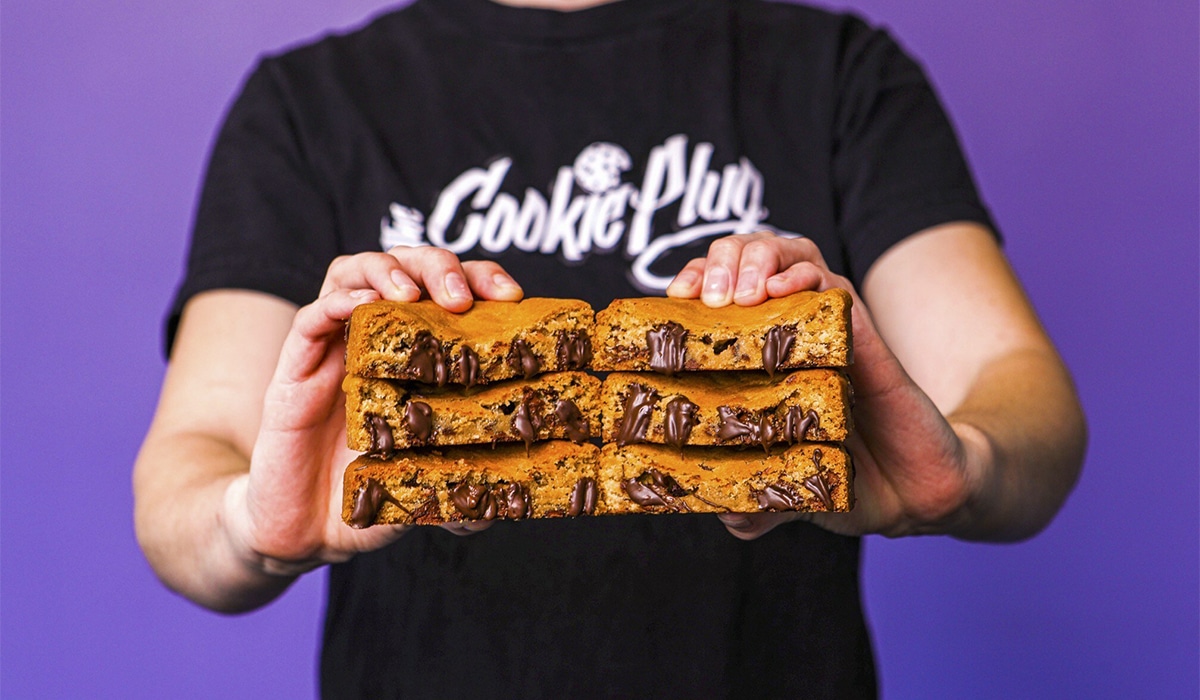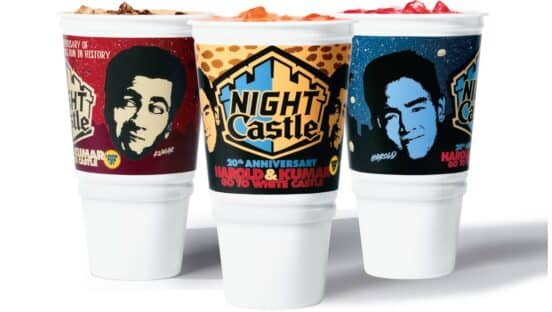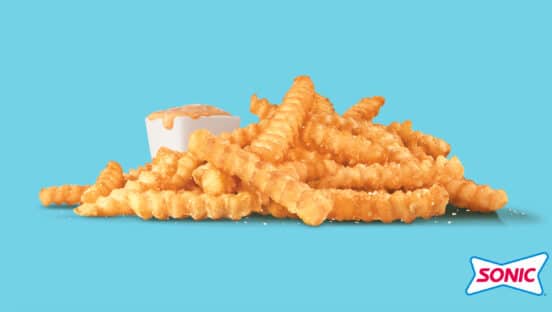Cookies are baking in more than just chocolate chips these days.
The popular confections comprise America’s latest dessert-based store craze, joining past favorites like artisan ice cream, cupcakes that trended in the early 2000s, and frozen yogurt, which has been in expansion mode a couple of times.
Gourmet cookie operators have exploded onto the scene, expanding both internally and through franchise deals that could add hundreds of new stores across the country. The burgeoning competition has led some observers to say the “Cookie Wars” have begun.
That phrase took a more literal turn last year after fast-growing national chain Crumbl, based in Linton, Utah, filed lawsuits against two smaller Utah-based players, alleging copyright infringement. These actions eventually garnered the social media hashtag “#UtahCookieWars.”
Using a combat term seems a bit overdramatic for the humble cookie, even if multiple chains are intent on growth.
“It depends on who is using the term and how it is being used,” says Chris Wyland, chief executive of Cookie Plug, based in Riverside, California. To him, the phrase is a quick way to describe the sudden creation of many fresh-baked cookie chains and the resulting frenemies.
Cookie Plug, which features a hip-hop vibe and cookies that are 4 inches in diameter and an inch high, has 23 company units and 17 franchised stores. “I don’t think anyone is going to confuse us with Crumbl,” which has more than 700 bakery stores nationwide, he says.
There are several reasons why cookie chains are increasingly taking center stage.
“These operations are attractive now as they can operate in a much smaller footprint, require less labor, have tight stock so management is easier, and can be more flexible with their hours,” explains Maeve Webster, president of Vermont-based foodservice consultant Menu Matters. Initial investments for these franchised units are relatively low.
Young consumers remain willing to spend on decadent items like big, gooey, rich cookies that offer the “full, immersive sensory experience” and can play with colors and textures, Webster notes. Plus, “cookies are nostalgic, but infinitely variable,” appealing to various customers.
That last point is basically echoed by almost everyone in the cookie business.
“I think that cookies are timeless,” says Sarah Wilson, chief executive of yet-another Utah-based cookie company, Chip Cookies, which launched in 2016 and has about a dozen units in several states. The cookie “is more American than pie. It is embedded in our communities and our diet.”
Jenn Johnston, CMO of Great American Cookies’ parent FAT Brands, agrees, noting, “Almost everybody loves cookies to some degree, so it is a fun business model.”
Unlike newbies like Chip Cookies, Cookie Plug, and Crumbl, Great America Cookies is a veteran. The franchised gourmet cookie chain, which claims about 370 bakeries, launched in 1977 with its original chocolate chip cookie recipe.
In that time, the company has seen several dessert trends come and go. “Different concepts have their time,” Johnston says, and the recent growth in gourmet cookies accelerated due to post-pandemic consumer behavior. “People have been turning to indulgent treats,” adding this response extends beyond individuals to families and groups.
Great America Cookies focuses on all these factions, not only through its many scoop-and-bake cookie varieties, but also its popular—and high revenue—cookie cakes, which are “a point of celebration and sets us apart,” she adds. Additionally, the company is increasingly co-branding units with FAT Brands’ Marble Slab Creamery, creating multi-option dessert outlets.
Chip Cookies is among the originators of the recent boom of fresh-baked gourmet cookies, born in Wilson’s off-hours cravings—while pregnant in Los Angeles—for a warm, hot chocolate chip cookie delivered to her home. The business began in 2016 as a gourmet cookie delivery service and since has added physical stores.
When Wilson and her husband, Sean, launched the company, “we saw a gap in the market for a warm gourmet cookie,” she says. “When we started we thought our customers were going to be pregnant women,” but they quickly discovered it could be much more inclusive.
Chip has four standard big, hot cookies—the OG (original chocolate chip) and Biscoff Chip among them—plus hundreds of recipes for one more that rotates weekly, and all stand up well in delivery. Wilson states product quality is key to the company’s growth beyond its 11 original, company-owned units to new franchised stores in the 50-plus territories it has sold.
“You have one product, so it better be the best cookie,” she says. That extends to delivery, including experimenting with drone service. “We historically have done our own delivery,” she notes. “We find that with third party that last mile doesn’t always work out. Controlling the quality is important.”
Cookie Plug’s chocolate-chip cookie is also named OG, and that moniker—urban slang for something exceptional—fits in nicely with the company’s hip-hop ambiance. The stores feature 15 daily thick cookies, including three keto, called “phatties”—another takeoff on urban lingo— with names like SnooperDoodle, a snickerdoodle referencing well-known rapper, Snoop Dogg.
An advantage of a concept like Cookie Plug, CEO Wyland says, is the relatively low cost to open and operate stores. Cookies are prepared off-site and baked in shops, requiring only a few employees daily to run each 800- to 1,000-square-foot unit. The average ticket is $23, as most customers buy several cookies to take away.
Cookie Plug has 265 units in development and projects 50 openings this year, Wyland states. “It’s always great to sell deals, but we want to be strategic and open successfully.”
At this point “There is room for multiple players, and room for everyone to play well,” he notes. Still, “You need to have a great product; you can’t just throw it out there.”
Eventually, a shakeout may come, according to analyst Webster.
“There’s always the danger of over-saturation of the marketplace when too many operations focus on only one category,” she explains. There’s also a danger that chains that grow too quickly “will result in variability, availability, etc.” that can damage a brand.
Smart operators will constantly look to create experiences that will tie consumers to the brand, including creating a social media presence, as Crumbl has done. “If it’s just a good cookie, that going to be less compelling,” Webster says, “because there are a lot of good cookies out there.”










